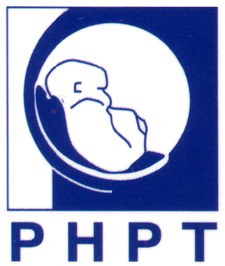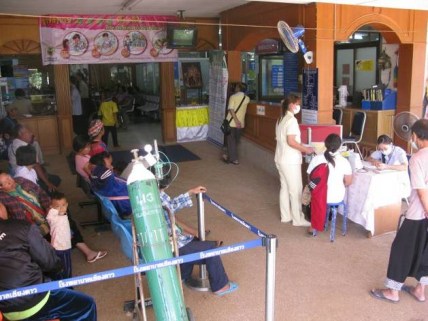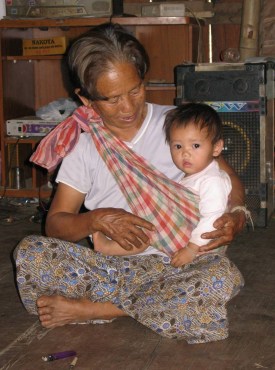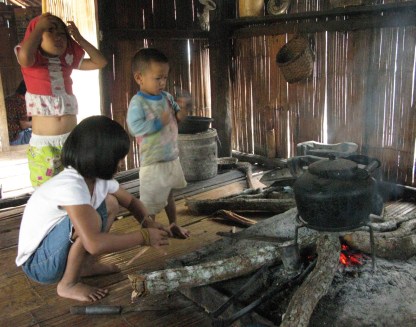|
|
|
Program for HIV Prevention and Treatment
Thailand - PHPT
|
Donate
NOW! Click Here!

The Program for HIV Prevention and Treatment (PHPT) is a
non-governmental, non-profit medical and social science research
and education organization working in Thailand since 1996.
Its objectives are to develop, test and apply medical treatments
and other interventions to improve health and alleviate social
consequences of HIV infection, and to optimize access for effective
health services in the general population.
PHPT has a multilingual (Thai, French, English, Hmong, Lahu)
international staff of about 100 people. PHPT's staff includes
researchers, medical doctors, anthropologists, epidemiologists,
biologists, pharmacologists, nurses, field interviewers, administrative
and financial staff. PHPT is a collaborative program under the
Thai International Cooperation Agency involving Chiang Mai University,
Institut de Recherche pour le Développement (France),
and several other international universities such as Harvard
School of Public Health and other research institutes. PHPT
collaborates closely in research and application of research
results with the Thai Ministry of Public Health.
|

PHPT's outstanding achievements
in medical research
In 2004, PHPT's Medical Science Department proved that a simple
antiretroviral drug treatment applied during pregnancy reduces
the transmission of HIV from mother-to-child from over 20% to
less than 2%. This treatment was immediately adopted by the
Thai Ministry of Public Health as the standard of care for use
in Thailand and is incorporated in the WHO recommendations for
the prevention of mother-to-child transmission in resource-limited
settings.
|
|
Social Science Research
Thailand was the Asian country most highly affected by the HIV
epidemic in the late 1980s. In recent years the vigorous actions
by the Thai government and non-governmental organizations have
greatly reduced the transmission of HIV and the availability of
antiretroviral (ARV) treatments through government health services
has transformed HIV infection from a lethal to a chronic disease
for many patients. The objectives of projects undertaken in PHPT's
Social Science Department are to assess the impact of HIV infection
and its treatment on the lives of people, their families and their
communities, and to improve access to care for especially vulnerable
populations including adolescents who were born with HIV, and
migrant and minority populations.
|

Arunothai school boys in World AIDS Day parade:
"AIDS - Can stop", "AIDS - Can treat"
|
1. Teenagers living
with HIV-AIDS
Many children born with HIV infection are now entering adolescence.
Unfortunately, these teenagers, whose lives were saved by the treatments
during early childhood, are experiencing a worrying increase in
mortality. PHPT's "Teenagers Living with Antiretrovirals"
(TEEWA) project investigates the health, social and family situation
of these children and their specific needs. The TEEWA study shows
that adolescents often face discrimination particularly at school.
Many of these children have physical and mental handicaps resulting
from infections before they started treatment. Their parents or
others who take care of them are very concerned about their economic
future and family life. Working together with a Youth Community
Advisory Board, PHPT is developing appropriate interventions to
address problems of adolescents who face life-long treatment. |
Listening to people's concerns
The multi-ethnic ATC project staff collects information from
migrants, members of minorities, Community Advisory Boards,
Ministry of Public Health officials, schools and non-governmental
organizations. Despite great diversity among these populations,
research results show important similarities in the constraints
to their access to services:
* Lack of knowledge of health and health services among minorities
and migrants and lack of familiarity among health care providers
with the customs and traditions of these populations;
* Lack of Thai language skills among migrants and minorities
and lack of translation services among health care providers;
* Expenses and difficulties of transportation to sources of
health services;
* Lack of eligibility for national health insurance among many
"undocumented" migrants and some minority citizens.
|
|
2. Access to Care (ATC): a key component of PHPT's Social Science
Department
 Thailand
has national health insurance with near-universal coverage for
its citizens. Thailand is also host to over 6,000,000 international
migrants plus over 1,000,000 members of 12 major ethnic minority
groups, many of whom are not effectively covered in Thailand's
universal health insurance scheme. As compared with the general
Thai population, ethnic minorities and newly arrived migrants
have disproportionately high rates of infectious diseases such
as HIV/AIDS, tuberculosis and malaria, but make less use of available
health services for prevention, diagnosis and treatment. Thailand
has national health insurance with near-universal coverage for
its citizens. Thailand is also host to over 6,000,000 international
migrants plus over 1,000,000 members of 12 major ethnic minority
groups, many of whom are not effectively covered in Thailand's
universal health insurance scheme. As compared with the general
Thai population, ethnic minorities and newly arrived migrants
have disproportionately high rates of infectious diseases such
as HIV/AIDS, tuberculosis and malaria, but make less use of available
health services for prevention, diagnosis and treatment.
The Access to Care (ATC) research describes and evaluates constraints
that limit access to health services for recent international
migrants and for some members of ethnic minorities, and plans
programs to overcome these obstacles.
|

Lahu grandmother and grandson (Huai Sai village)
|

Universal Access poster, Lahu women, Arunothai, "1 December
(2011) World AIDS Day Universal Access and Human Rights"
[Note soldiers were participating in the community-based activity]
|

Designing tailored interventions
The ATC team, working with other stake-holders suggests, develops
and tests interventions based on what we learn by listening to
the villagers. The ATC program has already provided some health
education materials translated in the languages of non-Thai-speaking
minorities and migrants, and is working with schools and other
organizations to provide health education to primary and secondary
school students and adults in communities with large minority
and migrant populations.
ATC is working with community advisory boards to develop minority
language-speaking guides to health services, and mobile teams
to provide services to patients who live with chronic illness
in relatively remote rural communities.
|
|
For more information about
the Program for HIV Prevention and Treatment,
please visit our website: www.phpt.org
Program for HIV Prevention and Treatment
(PHPT)
Office : 187/10, Changklan Rd.,
Changklan, Muang,
Chiang Mai 50100 Thailand
Tel: +66 (0) 5381 9125 to 29 -- Fax: + 66 (0) 5381 9130
|
Donations for PHPT Activities
PHPT seeks donations for the ATC program to listen to members
of additional minority groups and to migrants in different parts
of Thailand, and to develop and test interventions, such as health
education materials in non-Thai languages that are key to implementing
the "Stop AIDS" campaign, the current stage of Thailand's
efforts to curtail the HIV epidemic.
The TEEWA project seeks funds to continue and expand its work
with PHPT's Youth Community Advisory Board in order, for example
to prevent some of the difficulties experienced by teenagers with
their treatments and to design career development services specifically
for teenagers, and to provide accessible guidelines and advice
for their parents and care givers who are faced with young people
at a crucial stage in their personal life.
|
Donate by
mail to the
Program for HIV Prevention and Treatment - Thailand.
Make checks payable to "Philanthropic Ventures Foundation
" and note on the "memo" line on the check
- "PHPT Thailand"
Mail donations to:
Generosity in Action
c/o Philanthropic Ventures Foundation
1222 Preservation Park Way
Oakland, CA 94612-1201
|
 You can make a donation to the PHPT
via the internet.
You can make a donation to the PHPT
via the internet.
Click
here.
Note:
Once you are at PVF/Donate page, locate the section "Designated
Funds" - click the button for "Generosity in Action"
- and specifiy in the text box "PHPT Thailand" There
is a 3% administrative fee for internet transactions
|
|



 Thailand
has national health insurance with near-universal coverage for
its citizens. Thailand is also host to over 6,000,000 international
migrants plus over 1,000,000 members of 12 major ethnic minority
groups, many of whom are not effectively covered in Thailand's
universal health insurance scheme. As compared with the general
Thai population, ethnic minorities and newly arrived migrants
have disproportionately high rates of infectious diseases such
as HIV/AIDS, tuberculosis and malaria, but make less use of available
health services for prevention, diagnosis and treatment.
Thailand
has national health insurance with near-universal coverage for
its citizens. Thailand is also host to over 6,000,000 international
migrants plus over 1,000,000 members of 12 major ethnic minority
groups, many of whom are not effectively covered in Thailand's
universal health insurance scheme. As compared with the general
Thai population, ethnic minorities and newly arrived migrants
have disproportionately high rates of infectious diseases such
as HIV/AIDS, tuberculosis and malaria, but make less use of available
health services for prevention, diagnosis and treatment.

